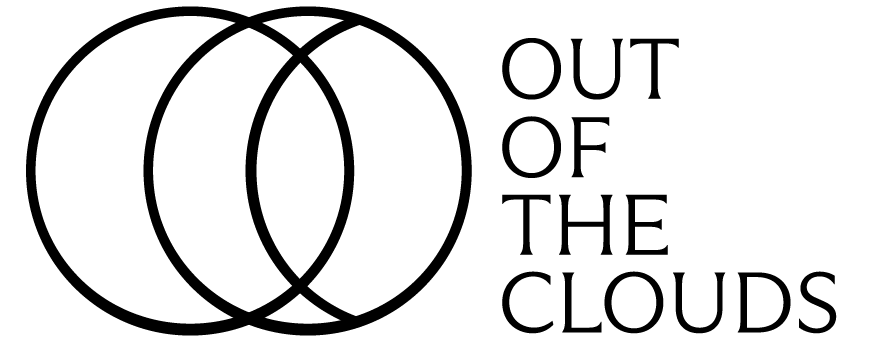Early January, I went for coffee and a long walk with one of my aunts. Séverine lives an hour away from me on the French side of Lake Geneva. We care about each other, but see one another rarely and usually at family gatherings. This time it was just the two of us — a first. Her daughter is living on the other side of France and my brother was otherwise occupied. The dynamic and tone of the conversation changed with just us two women, aunt and niece.
When I reached out to her before the holidays, I expected she would already be settled in Lyon, where she had been planning to move last we spoke. Her plans crumbled, however. Over a cup of cappuccino, she told me how the sale of her house had been delayed by nearly two years already. Organised as she is, she’d packed her life away: the good china, the books, the clothes. And then the bad news happened. A financing problem, then something with the city council. Not once, not twice, but three times her move has been postponed. She has been living in limbo for 24 months, just her and her dog Talia among piles of boxes, waiting to start her life anew.
This sounds hard, I empathised. Not one to complain, her eyes betrayed her weariness as she opined.
As I contemplated what to share with you about Out of the Clouds this month, this story felt like a mirror to what’s been happening behind the scenes.
Nearly two years ago, I myself started the journey of refreshing the online home of my project that is OutoftheClouds.com. Just like my aunt, I had bright and glossy plans. Like her, I got stuck in a limbo state, albeit in digital form. Stops and starts and stops again. Like her, I ground to a halt. I paused my communication, my writing, and both digital and in person workshops.
2024 also saw one of my other dreams disappear in a pile of dust, leaving me tender and fragile. For all these reasons, I retreated into myself.
Not everything stopped. The podcast, as you may know, thrived last year. I had the honor of interviewing wonderful guests like Zubaida Bai, Shoshana Stewart and Chris Schembra, and that affirmed for me that these conversations were important and still worth having.
While my own platform was, like my aunt’s living situation, in limbo, I invested myself elsewhere, offering weekly live classes on Insight Timer and focusing my efforts on Loving Kindness. My Insight Timer community is growing slowly, reaching just over 300 now, and my biggest live attendance topped 120 participants.
When you know, as I do, that even a single session of Loving Kindness can invite up to 35% of participants to continue to meditate for over 15 months, I found encouragement in these numbers.
2025 has, so far, been off to a buoyant start. A new website is under construction and, all things being well, it will be live in a couple of weeks. From this new platform I’ll be able to share new projects, including offering my first online course.
I see now that, if anything, the pause that I was forced to take allowed me to reflect on what matters to me. As the Zen buddhist saying says:
‘The most important thing is to remember the most important thing.’
With that on my mind in this transition to a new year, I’ve been considering my purpose. Given the state of the uncertainty and anxiety pervasive around the world, one thing is clear: we need more humans of all ages, creeds and backgrounds practicing Loving Kindness. And that need has clarified my mission, which is to spread the practice of Mettā as far and wide as possible, whether by telling stories, inviting you to meditate with me, offering workshops, etc.
This led me, at the start of January, to start an exploratory qualitative study on the topic of Mettā, or Loving Kindness, with seasoned practitioners, with the goal to publish a nonfiction book on the topic.
An idealist, me? Yes. But science is grounding my plan in real opportunity, as I heard in a TEDxTalk on the Power and Science of Social Connection by Emma Seppala. In it she shares:
“The most beautiful fact of our compassion is that it’s incredibly contagious.
It’s kind of a warm and fuzzy feeling. Sometimes we can be moved to tears. This is something Jonathan Haidt at the University of Virginia called ‘a state of elevation.’
What happens when there’s elevation? When you feel that elevation, you’re more likely to go and help others. And Nicholas Christakis at Harvard has shown that if one person acts fairly, it impacts three degrees of separation away from them.
So if you’re a compassionate person in your life, your wives, brothers, neighbors, are also going to be more compassionate.
When you have compassion in your life, you feel connected, you feel all the benefits of connection, you’re benefited. Everyone who watches you, everyone who lives with you, everyone who has the beautiful gift of having you in their life also feels impacted and feels good, and they become more compassionate. And then whoever you touch, whoever you help in your life, also benefits.”
With all that said, apologies for the long silence. I hope to have much more to share later this year. Thanks for reading me — I don’t take your time or interest for granted.

